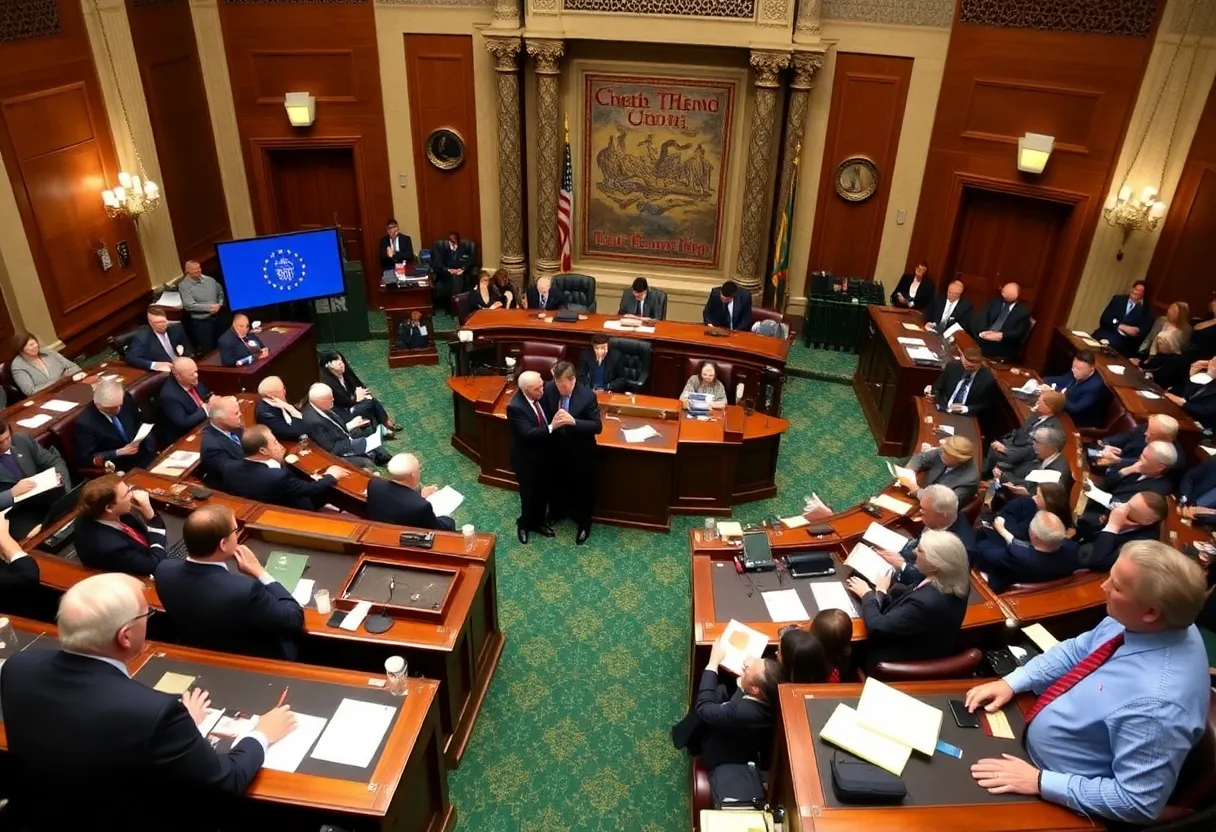News Summary
On May 1, 2025, the House passed House Joint Resolution 88 to block California’s plan to prohibit new gas-powered vehicle sales by 2035. The vote reflected bipartisan support against California’s aggressive environmental policies. Proponents argue that the ban restricts consumer choice and state autonomy, while supporters of the ban claim it is crucial for reducing emissions and improving air quality. California’s actions have inspired other states to consider similar measures, further escalating the political debate over environmental regulations.
California – On May 1, 2025, the House of Representatives voted 246-164 in favor of blocking California’s more aggressive plans to prohibit the sale of new gas-powered vehicles by 2035. This resolution, known as House Joint Resolution 88, aims to revoke a waiver from the Environmental Protection Agency (EPA) that was granted during the Biden administration, which permitted California to implement such a ban.
The vote was backed by 211 Republicans and 35 Democrats, demonstrating a bipartisan alignment against California’s initiative. Key proponents of the measure argued that it represents a significant win for consumer choice, suggesting that no individual state should impose its vehicular regulations on the entire country. Among the co-sponsors, Representative Kevin Kiley, who has previously attempted to challenge Governor Gavin Newsom in a recall election, labeled the vote a “major victory for common sense.”
Along with House Joint Resolution 88, the House also passed two additional measures aimed at blocking California’s plans to enhance the sales of zero-emission trucks and to tighten nitrogen oxide emission standards for engines. These measures received votes of 231-191 and 225-196, respectively. The legislative developments signal a broader contention over California’s environmental policies.
Background on California’s Vehicle Ban
In 2020, Governor Gavin Newsom signed an executive order directing the California Air Resources Board to halt the sale of new gasoline-powered vehicles by 2035, though this measure did not prohibit the ownership or sales of used vehicles. Supporters of the ban, including environmental and public health advocates, assert that it is essential for significantly reducing emissions and improving air quality.
California’s move has prompted 11 other states to declare their intentions to follow suit, collectively representing about 40% of the U.S. auto market. The state’s Clean Air Act authority has historical roots traced back to Republican figures, including Ronald Reagan and Richard Nixon. Since the Biden administration, California has received three waivers from the EPA to enforce its stricter vehicle emissions regulations.
Political Reactions and Controversies
Governor Newsom’s office responded critically to the House’s actions. The administration argued that the Congressional Review Act (CRA) was utilized improperly and countered findings from both the Government Accountability Office and Senate Parliamentarian that challenged the procedural validity of the CRA in this instance. California officials indicated the possibility of legal challenges in response to the resolution’s passage.
Senator Alex Padilla expressed that the House’s actions undermined California’s leadership in climate and economic strategies. Meanwhile, Representative John Joyce, who introduced the resolution, asserted Congress’s authority over automotive regulations. Additionally, Representative Paul Tonko raised concerns that such resolutions might set a troubling precedent for future legislative measures concerning state regulations.
Broader Implications
The ongoing battle over California’s automotive regulations highlights the tension between federal authority and state rights in environmental policy. Opponents, including many Republicans and business groups, argue that such bans limit consumer options, while advocates insist that stricter regulations are necessary for addressing climate change and protecting public health.
While the House has pushed forward with blocking California’s gas vehicle ban, the future remains uncertain. With statements indicating potential legal fights and additional legislative responses, the implications of this decision will likely resonate across the nation as other states evaluate their own environmental strategies.
Deeper Dive: News & Info About This Topic
- The Washington Post: California Cars Waiver House Vote
- Wikipedia: Gasoline-powered vehicles
- Fox News: 35 Democrats Vote GOP to Block Biden Rule
- Google Search: California gas car ban
- The New York Times: California Gas Cars Waiver House Vote
- Encyclopedia Britannica: Automobile
- Fox Business: Congress Takes California’s Scheduled Gas Car Ban
- Google News: California vehicle ban
- Newsweek: Full List of Democrats Blocking California Gas Car Ban
- Google Scholar: California environmental policy

Author: STAFF HERE MISSION VIEJO WRITER
The MISSION VIEJO STAFF WRITER represents the experienced team at HEREMissionViejo.com, your go-to source for actionable local news and information in Mission Viejo, Orange County, and beyond. Specializing in "news you can use," we cover essential topics like product reviews for personal and business needs, local business directories, politics, real estate trends, neighborhood insights, and state news affecting the area—with deep expertise drawn from years of dedicated reporting and strong community input, including local press releases and business updates. We deliver top reporting on high-value events such as Oso Fit 5K Fun Run and Community Health Fair, Walk Against Drugs & Community Fair, and National Night Out. Our coverage extends to key organizations like the Mission Viejo Chamber of Commerce and Providence Mission Hospital Mission Viejo, plus leading businesses in retail and education that power the local economy such as The Shops at Mission Viejo, Capistrano Unified School District, and Amazon Delivery Station. As part of the broader HERE network, including HEREAnaheim.com, HEREBeverlyHills.com, HERECostaMesa.com, HERECoronado.com, HEREHollywood.com, HEREHuntingtonBeach.com, HERELongBeach.com, HERELosAngeles.com, HERESanDiego.com, and HERESantaAna.com, we provide comprehensive, credible insights into California's dynamic landscape.


